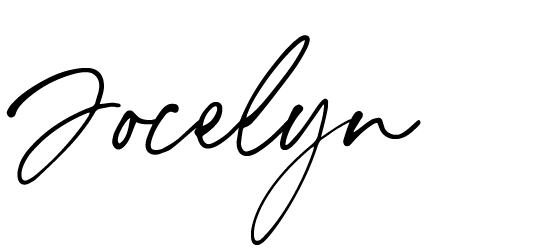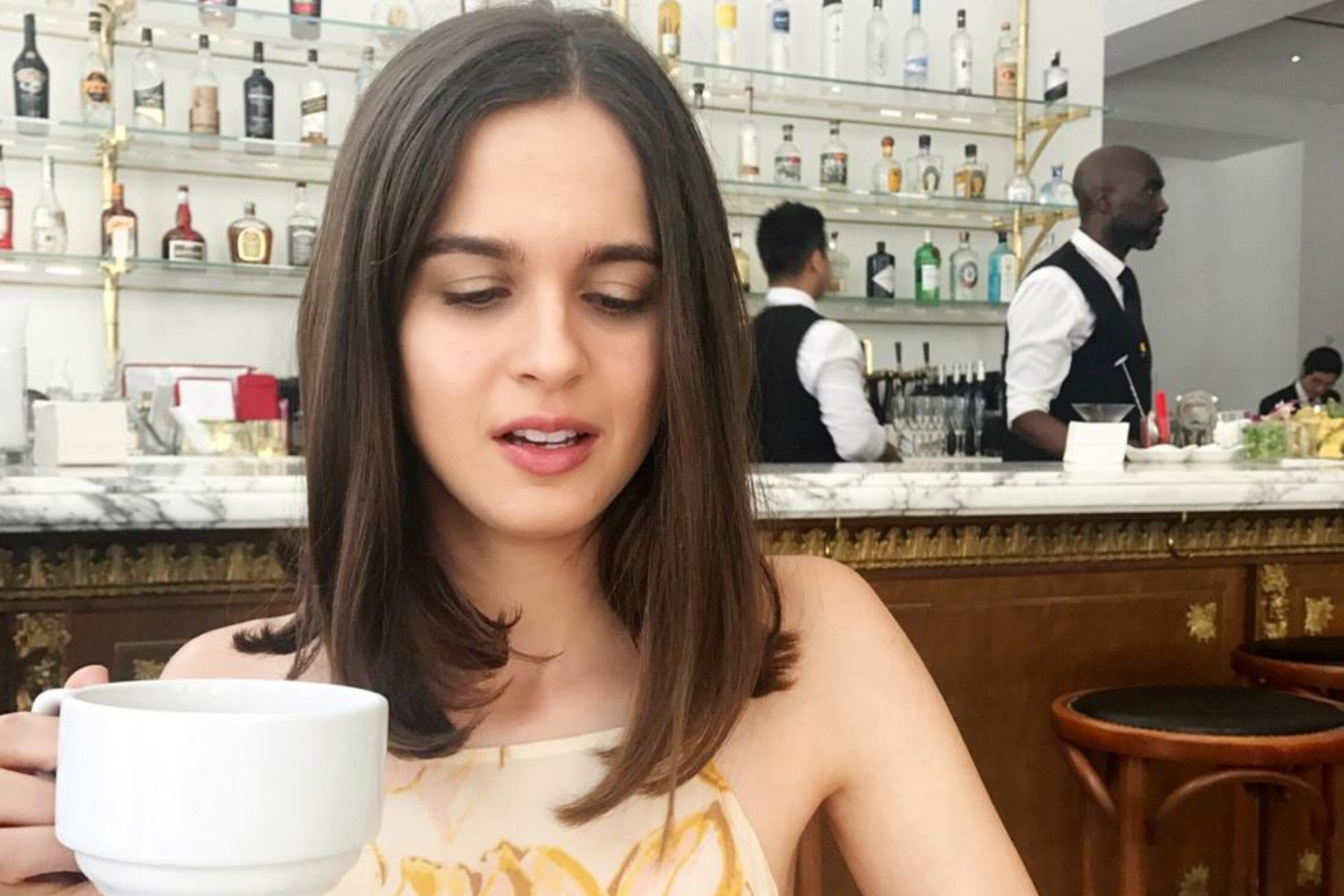Going The Extra Mile As A Freelance Writer With Jacqueline DeMarco
Freelance writer for most (if not all) your favorite publications, Jacqueline DeMarco put in long hours of research and meeting deadlines to get to where she is today. Some of the publications she writes for include: The Everygirl, Girlboss, Create & Cultivate, and Apartment Therapy. Jacqueline also landed her dream job as the Marketing Manager for Career Contessa, which influenced the amount of freelance work she was doing.
In this conversation, Jacqueline shares her journey as a freelance writer, how she gets creative in diversifying her content, moments where she felt self-doubt as a writer, what advice she gives to aspiring freelance writers and more!
How did your journey as a freelance writer begin?
My freelance writing career began my senior year of college. I had just completed an internship at Byrdie and was really interested in writing about beauty topics. So I pitched XoVain a few article ideas, as they encouraged submissions, and much to my surprise they commissioned me to write a few articles! I used my past internship articles as samples of my work. I’d written about 70 published articles for unpaid internships at that point, but it was really validating to be paid for my work.
Was there a point where you took a leap from traditional job to full-time freelancer? If so, what did that look like?
I’ve never worked as a full-time freelancer, but I’ve come close. My first job post-college was not super writing intensive. So I started writing as a creative outlet with no intention of making a living off it. I began by writing for a site I respected for free and that got me in the habit of pitching regularly and meeting deadlines. I really enjoyed what I was writing and it became my favorite post-work activity. As I saw opportunities arise, I started applying for paid-freelance work. Fast forward a year and I was dedicating about 20-hours a week to freelance writing. It was a lot to balance on top of a full-time job. I was seriously considering switching to freelance writing full-time when I saw an opening for my dream job at Career Contessa, a digital career mentoring platform that I loved reading. After I started at Career Contessa, I was really happy with how much writing I was doing and scaled back on how many freelance projects I was taking on. It gave me the freedom to only work on stories I was really passionate about, instead of trying to see if I could make a living as a freelancer.
“I learned to focus on only writing stories I really wanted to write and for publications I really admired. Things always seemed to fall into place in these situations.”
You write for so many awesome publications! What were some of your initial struggles when you were first trying to freelance write?
I have been very fortunate to write for truly amazing publications. And what I’ve realized after taking a small step back from freelancing is that the struggles I encountered were when I wasn’t enjoying the work I was doing. This occurred when I was considering making freelancing my full-time job. I started applying to any opening I could find and taking on work with brands I wasn’t naturally drawn to. The work was more challenging, landing the jobs was more difficult, and it felt like a lot of work. Whereas writing for the publications I loved never felt like work! I learned to focus on only writing stories I really wanted to write and for publications I really admired. Things always seemed to fall into place in these situations.
What would you give credit to in helping you become a freelance writer for all these publications?
I’d say a serious work ethic is imperative to my success as a freelancer. It was very hard balancing a full-time job as well as freelance writing. A lot of nights and weekends were dedicated to making deadlines, but I never missed a deadline or even an hour of work at my full-time job because of my writing. At the end of the day, the hard work was well worth it to me. Producing quality work and never missing a deadline not only kept my editors happy but helped me build a portfolio I could be proud of. Which made writing for new publications easier as they could see strong examples of my writing.
“If someone doesn’t like something you wrote, it doesn’t necessarily mean you’re a bad writer, it’s just a difference of style or opinions.”
Was there ever a time where you doubted yourself as a writer? If so, how did you overcome that?
There have been so many times that I’ve doubted myself. When there were heavy edits made to my articles, stories were killed, or there were unkind comments from readers. I don’t know if it’s something I will ever overcome completely, but I try to have a thick skin when it comes to critiques of my work. I really try to learn from the critiques while keeping in mind that writing and editing are subjective. If someone doesn’t like something you wrote, it doesn’t necessarily mean you’re a bad writer, it’s just a difference of style or opinions.
I’ve seen your articles and I’ve wondered how you keep coming up with new content ideas? Not only that but also not repeating content for different publications… because I feel like (for example) Girlboss and C&C have a similar demographic/context!
Coming up with new content ideas is a challenge. At this point, I’ve accepted that there is no such thing as an original idea, but I try my best to be creative with my topics! It can be challenging to come up with new topics if you are writing for similar publications. The trick to that is keeping in mind the different audiences of the publications. Two publications that cover wellness can cover them in completely different ways for totally different demographics.
I also think when coming up with topics it’s important to go deep, not wide. So say I’m coming up with career advice subjects. I don’t want to write How To Be Happier At Work, that’s too broad. So then I think about what makes me unhappy at work, like when my neck starts to hurt around 3 pm. That makes me want to research and write about How To Have Better Posture At Your Desk. I am often inspired by what I, or my friends, are struggling with in real life.
What does your writing process look like when creating a new post?
I start by doing some research on the topic. Once I’ve learned a bit about my topic, it gives me an idea of where I want to take the story. Then I outline the story. When I was in school everyone wanted to skip this step, but I’ve always found it so helpful for keeping my articles organized and easy for the reader to follow. Then I pump out the first draft. I never over think a first draft. I find it easier to get all my thoughts down on paper and then go back and edit for style and tone later. I think when you try to write an article all in one go-around you are more prone to writer’s block.
“Going the extra mile is really important because publications see so many applicants and pitches come their way.”
What are some must-haves in an article to make it stand out and intrigue the reader?
Information is so instantly available that you need to try your best to tell your reader something they haven’t necessarily read before. I really try to make sure my stories don’t just regurgitate the same advice or ideas you can find on a basic Google search. I try to take more time with my research and dig a little deeper so I can create more original content.
How have you balanced creativity and business as a freelance writer?
To balance the creative and business side as a freelance writer, it’s important to stay organized. You can spend a lot of time on invoicing, promoting your stories, or doing your taxes if you don’t keep up on them. If you’re organized and get good business systems in place, you’ll be able to stress less about that side of your work. Then you can spend more time on the fun, creative side!
What advice would you give an aspiring freelance writer when approaching a publication for opportunity?
Take applying for new publications very seriously. If they ask for story ideas, make sure they are original ideas that they have never covered before. If they asked for one sample article, write two. Include suggestions for social media copy or provide photographs that can go with the story. Going the extra mile is really important because publications see so many applicants and pitches come their way.
Working in-house for a publication is also an invaluable experience. My perspective on pitching editors and applying for freelance work has completely changed after working in-house. You get an insight into what editors want and how to stand-out as an applicant that you just can’t have if you’ve only ever worked as a freelance writer.
What are three of the biggest lessons you’ve learned so far in your career journey that you perhaps would like to remind yourself of in the future?
This interview was a great opportunity for me to reflect on these lessons! I think a lot of what I discussed above are lessons that I will hopefully remember throughout my career.
Only write stories or for publications that you are passionate about.
Go the extra mile, whether it be when pitching stories, researching your topics, or editing your work.
Get that first draft out before you start questioning your writing. Once you have the base of your story, you can really focus on editing to make sure your writing is the best it can be.


